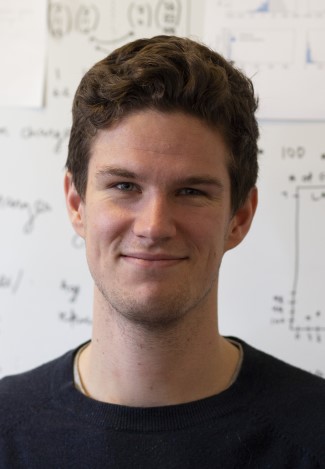Emil Bargmann Madsen
Msc Political Science from Aarhus University, PhD student at CFA 2017-2021
Supervisor: Kaare Aagaard. Co-Supervisor: Carsten Jensen and Jens Peter Andersen.
How would you describe your job?
I am a postdoctoral researcher at CFA, and involved in multiple research projects while also teaching statistical methods at the Department of Political Science. Right now, I focus primarily on two projects. One project is a broad-based investigation of the global scientific ‘elite’, where we try to tease out the factors contributing to the strong stratification of the scientific profession, work, and allocation of credit or recognition. We are particularly interested in how mentoring and resources play a hand in propelling some researchers to the top of their profession in terms of status, and why they often tend to retain this status. Second, I am working on evaluating different solutions to reviewing and awarding research grants. Here, we look at different methods in order to assess their potential in creating more balanced pools of applicants and better support novel research ideas.
What was the topic of your PhD project?
My project was an attempt at showing how much research funding is allocated to different research topics, disciplines and areas. A significant portion of the research we conduct is funded through competitive grant competitions, where researchers apply for money with a specific project in mind, and decisions are made through the evaluation of these project ideas. Funding decisions are made by very different people, at different times, and across very different research funders. While some funding organizations may have some overview of who they fund and what type of projects are conducted, the type of research funded across these organizations is largely unknown.
In the empirical part of my project, I collected (or help collect) data on more than a 100,000 individual research grants awarded by 22 research funding organizations in Denmark and the United Kingdom through a decade. Along with different collaborators, I tried to discern what type of research was produced in these funded projects by using information on the publications produced by these grantees to categorize the topics and disciplines addressed.
Getting a clearer and broader view of who receives competitive research funding, and what they use it for is quite important for informing coming policy discussions. Around 1 % of the national GDP goes into government funding of research, and private companies, foundations and charities contribute even more. However, we know very little about the type of science we fund. From a societal point of view, this may come off as somewhat disappointing. How can we solve some of the biggest problems we are collectively facing, if we have no overview of the investments we are currently making?
How will your PhD degree benefit you in your current job?
While the work that I do now is not a clear continuation of my PhD project, there are many commonalities. In order to discuss stratification in science or the best ways to allocate resources in the system, we need to consider the questions I posed. For example, are the most highly funded topics always the most novel and impactful? If we prioritize some specific projects and research agendas, are we also inadvertently limiting who are able to conduct research? How to we ensure a balanced distribution of resources that ensures enough funding for important research, while not leaving other areas without any support?
How did you experience doing a PhD at CFA?
It was a great experience. Doing a PhD at CFA means being included in an interdisciplinary environment where you are exposed to many different ways of thinking about and conducting research. For me, it meant not feeling totally isolated within a small corner of the whole research enterprise, and having my ideas tested, discussed, and improved from many angles and perspectives.
